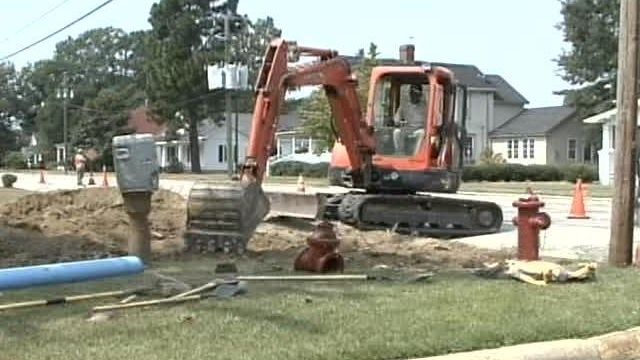As Whitakers Upgrades Aging Water Lines; Residents Must Do Without Water
For the first time in 70 years, the town of Whitakers is upgrading water lines. Some residents say the project is leaving them without water and affecting their way of life.
Posted — UpdatedWhitakers is a small town, divided between Edgecombe and Nash counties by railroad tracks. A train goes by every so often but for the most part, not much happens there. The 800 people who live in Whitakers like the slow pace, but unhappiness is growing among those frequently finding themselves without water.
“I can't even run my business because the water is off for so long,” said Terkessha Smith, a beauty salon owner.
As the town replaces aging water pipes, they frequently have to shut off water valves. Fliers are put up to warn people when water is to be shut-off. Still, life without water has a lot of folks upset.
“There are a lot of elderly people in the area with diabetes, open ulcers, that can't get water,” said Smith.
There is one medical center in town. For Dr.Ron Hughes, hand washing there is vital to protecting the health of his patients. Hughes said treating the sick has become difficult because he does not always know when he will be without water.
“We get notice that it will be cut off between eight and three. Last Friday, it wasn't until 10 o'clock or so that it got cut of,” said Dr. Hughes.
Council members would not comment on camera, but said the fliers were posted with plenty of notice.
Coco's is the only restaurant in town. Without water, the manager said she is unable to use the grill, but said she hasn't had any problems.
“I go where they're at and ask them are they specifically cutting my water off that day and they tell me yay or nay,” said Coco's owner Dolores Proctor.
Council members said work crews must turn the water off completely while replacing the valves.
The project is funded by a $2 million government grant and should be completed in about six months.
• Credits
Copyright 2024 by Capitol Broadcasting Company. All rights reserved. This material may not be published, broadcast, rewritten or redistributed.





